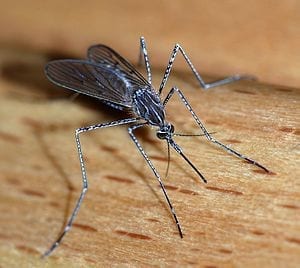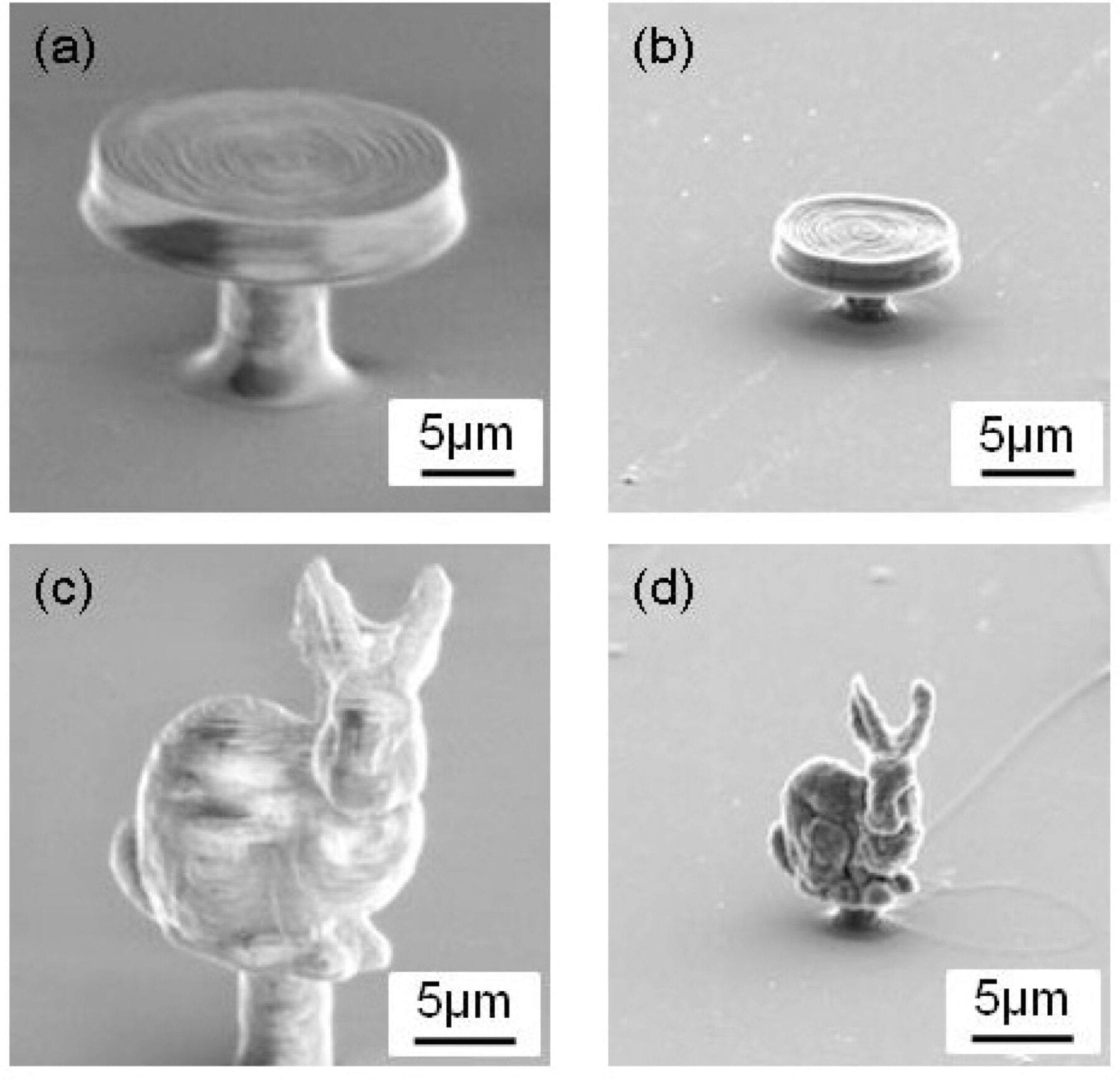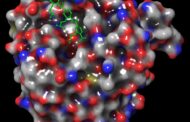
In one of the first successful attempts at genetically engineering mosquitoes, HHMI researchers have altered the way the insects respond to odors, including the smell of humans and the insect repellant DEET.
The research not only demonstrates that mosquitoes can be genetically altered using the latest research techniques, but paves the way to understanding why the insect is so attracted to humans, and how to block that attraction.
“The time has come now to do genetics in these important disease-vector insects. I think our new work is a great example that you can do it,” says Leslie Vosshall, an HHMI investigator at The Rockefeller University who led the new research, published May 29, 2013 in the journal Nature.
In 2007, scientists announced the completion of the full genome sequence of Aedes aegypti, the mosquito that transmits dengue and yellow fever. A year later, when Vosshall became an HHMI investigator, she shifted the focus of her lab from Drosophila flies to mosquitoes with the specific goal of genetically engineering the insects. Studying mosquitoes appealed to her because of their importance as disease carriers, as well as their unique attraction to humans.
Vosshall’s first target: a gene called orco, which her lab had deleted in genetically engineered flies 10 years earlier. “We knew this gene was important for flies to be able to respond to the odors they respond to,” says Vosshall. “And we had some hints that mosquitoes interact with smells in their environment, so it was a good bet that something would interact with orco in mosquitoes.”
Vosshall’s team turned to a genetic engineering tool called zinc-finger nucleases to specifically mutate the orco gene inAedes aegypti. They injected the targeted zinc-finger nucleases into mosquito embryos, waited for them to mature, identified mutant individuals, and generated mutant strains that allowed them to study the role of orco in mosquito biology. The engineered mosquitoes showed diminished activity in neurons linked to odor-sensing. Then, behavioral tests revealed more changes.
When given a choice between a human and any other animal, normal Aedes aegypti will reliably buzz toward the human. But the mosquitoes with orco mutations showed reduced preference for the smell of humans over guinea pigs, even in the presence of carbon dioxide, which is thought to help mosquitoes respond to human scent. “By disrupting a single gene, we can fundamentally confuse the mosquito from its task of seeking humans,” says Vosshall. But they don’t yet know whether the confusion stems from an inability to sense a “bad” smell coming from the guinea pig, a “good” smell from the human, or both.
Next, the team tested whether the mosquitoes with orco mutations responded differently to DEET. When exposed to two human arms—one slathered in a solution containing 10 percent DEET, the active ingredient in many bug repellants, and the other untreated—the mosquitoes flew equally toward both arms, suggesting they couldn’t smell the DEET. But once they landed on the arms, they quickly flew away from the DEET-covered one. “This tells us that there are two totally different mechanisms that mosquitoes are using to sense DEET,” explains Vosshall. “One is what’s happening in the air, and the other only comes into action when the mosquito is touching the skin.” Such dual mechanisms had been discussed but had never been shown before.
The Latest Bing News on:
Genetically engineering mosquitoes
- Three Texas A&M AgriLife professors honored for outstanding contributions to scienceon April 18, 2024 at 8:08 am
Three professors in the College of Agriculture and Life Sciences have been named AAAS Fellows for contributions to their research fields.
- New mosquito net prevents 13 million malaria cases, 25,000 deaths in 3 yearson April 18, 2024 at 7:42 am
An innovative, cost-effective mosquito net has prevented 13 million malaria cases and 25,000 deaths in countries of sub-Saharan Africa.
- The New Age of D.I.Y. Medicineon April 17, 2024 at 9:06 am
A new vaccine for preventing cavities doesn’t have F.D.A. approval or promising clinical trials, but it does have customers.
- Universal Vaccine Strategy Boosts Body’s RNAi Response to Viruseson April 16, 2024 at 4:54 pm
Researchers say there is little chance of a virus mutating to avoid this vaccination strategy, which blocks viral ability to suppress host RNAi responses.
- Jurassic Park eat your heart out: scientists really are bringing back extinct beastson April 9, 2024 at 4:03 am
Your scientists were so preoccupied with whether or not they could, they didn't stop to think if they should.” So says Jeff Goldblum’s character, Dr Ian Malcolm, in Steven Spielberg’s 1993 blockbuster ...
- Scientist claims this 100-million-year-old creature found in amber, once lived inside dinosaurson April 9, 2024 at 3:29 am
Researchers from the Nanjing Institute of Geology and Paleontology at the Chinese Academy of Sciences have published a paper announcing the discovery ...
- Amphibian Apocalypse: Virus vs. Fungus in the Battle for Survivalon April 8, 2024 at 5:48 pm
Scientists have discovered a virus that infects a deadly amphibian fungus, offering hope for combating a disease that has led to significant declines in frog and toad populations globally. A fungus ...
- How do mosquito bats work? | Explainedon April 8, 2024 at 4:30 pm
Learn about the physics behind mosquito bats, electric currents, and sparks in a concise and informative manner.
- US company hoping to bring back the dodo and the mammoth - but here's why it won't be like Jurassic Parkon April 7, 2024 at 4:55 pm
Dallas-based firm Colossal Biosciences is attempting to "de-extinct" the mammoth, the dodo, and the Tasmanian tiger, using genetic engineering.
- A Virus May Help Save The World’s Amphibians From Extinctionon April 4, 2024 at 10:44 am
A fungus that is devastating populations of frogs and toads around the world may be vulnerable to a virus that can infect it, and that could be genetically engineered to kill it.
The Latest Google Headlines on:
Genetically engineering mosquitoes
[google_news title=”” keyword=”genetically engineering mosquitoes” num_posts=”10″ blurb_length=”0″ show_thumb=”left”]
The Latest Bing News on:
Disease-vector insects
- Argentina bug invasion knocks $1.3 billion off corn cropon April 18, 2024 at 11:49 am
A rare leafhopper insect plague in Argentina has knocked an estimated $1.3 billion off the expected 2023/24 corn crop, the director of economic studies at the Rosario grains exchange said on Thursday, ...
- With Lyme Disease on the Rise, Washtenaw County Health Offers Tips to Prevent Tick Biteson April 18, 2024 at 7:55 am
Preventing tick bites is especially important as local cases of Lyme disease have increased dramatically in recent years, ...
- County to Conduct First Mosquito-fighting Larvicide Drop of 2024 Next Weekon April 17, 2024 at 1:26 pm
San Diego County is scheduled to conduct its first routine aerial larvicide drop of the year next week on up to 52 local waterways to help stop mosquitoes from potentially spreading diseases like West ...
- Houston Braces for Mosquito Season, Harris County Officials Urge Prevention Actionon April 16, 2024 at 1:57 pm
Harris County Public Health has launched the 2024 mosquito season in Houston, emphasizing control strategies and disease prevention.
- Register Now for Greater L.A. County Vector Control Fireside Chaton April 15, 2024 at 3:02 pm
Join the Greater Los Angeles County Vector Control District online for an engaging conversation with experts in the field as they discuss the latest advancements and future trends in vector control ...
- County Goes After Invasive Mosquito Found in East San Joseon April 12, 2024 at 12:32 pm
A half-dozen non-native Aedes aegypti mosquitoes have been detected in East San Jose, according to the county. The insect is invasive and has been known to spread diseases such as dengue, Zika and ...
- Good Natured Gardening: Plants that deter mosquitoeson April 11, 2024 at 3:59 pm
Lemongrass is the original mosquito plant. This perennial herb can grow up to 5’ tall and 3’ wide. It contains citronella oil, the most famous of mosquito repellent scents. The Brooklyn Botanic Garden ...
- Startling: Disease-Spreading Blood-Sucking Flies Are Spreading Throughout Germanyon April 10, 2024 at 11:31 am
The suitability of habitats for these medically relevant insects has been modeled across four federal states. At just six millimeters long, black flies (Simuliidae) might seem as harmless as house ...
- Here Come The Mosquitoes! Just How Bad Things Will Be And Other Things You Should Knowon April 7, 2024 at 12:00 pm
The famous and pesky “ankle biters” are back after a couple months of record rain. Plus, how you can mosquito-proof your surroundings.
- St. Augustine mosquito museum mixes education with fun - and a whole lot of bugson March 29, 2024 at 6:52 pm
It's locally called the mosquito museum, although it's actual name is the Disease Vector Education Center. It opened this month to the public in St. Augustine. The brand new interactive insect ...
The Latest Google Headlines on:
Disease-vector insects
[google_news title=”” keyword=”disease-vector insects” num_posts=”10″ blurb_length=”0″ show_thumb=”left”]







